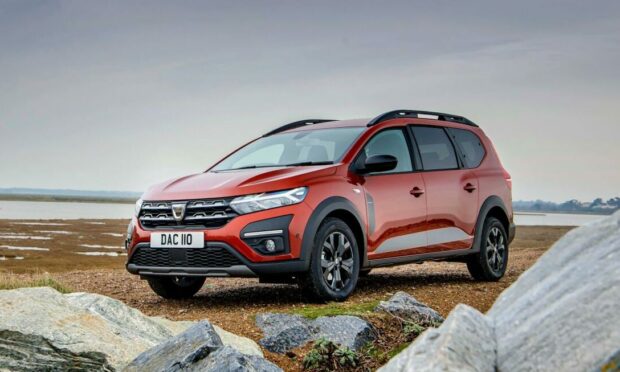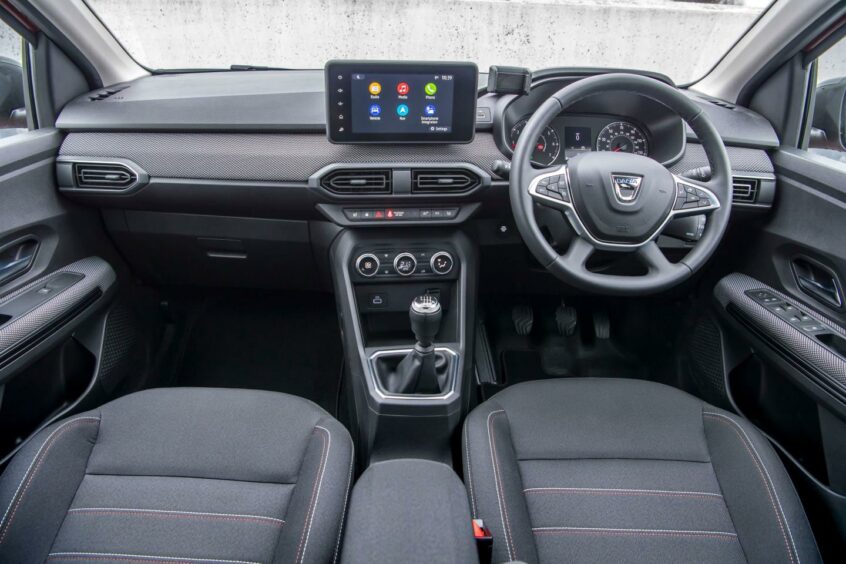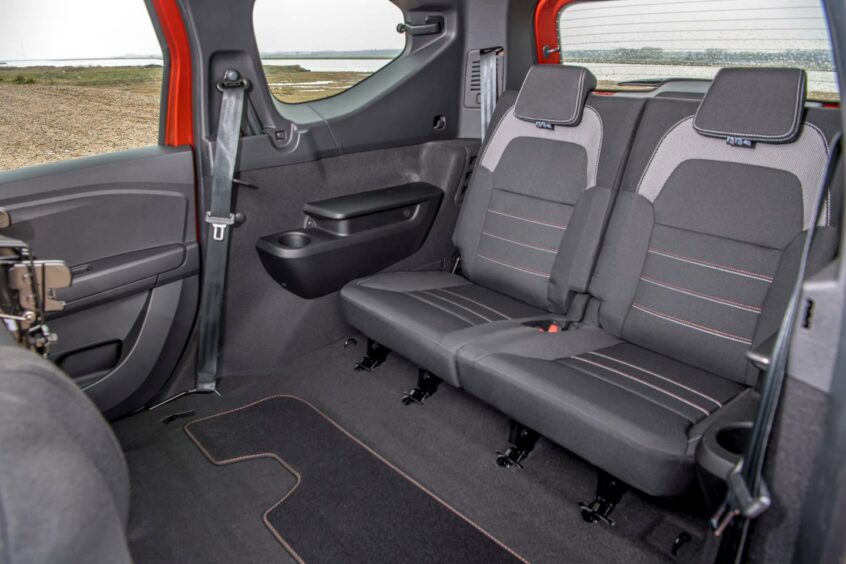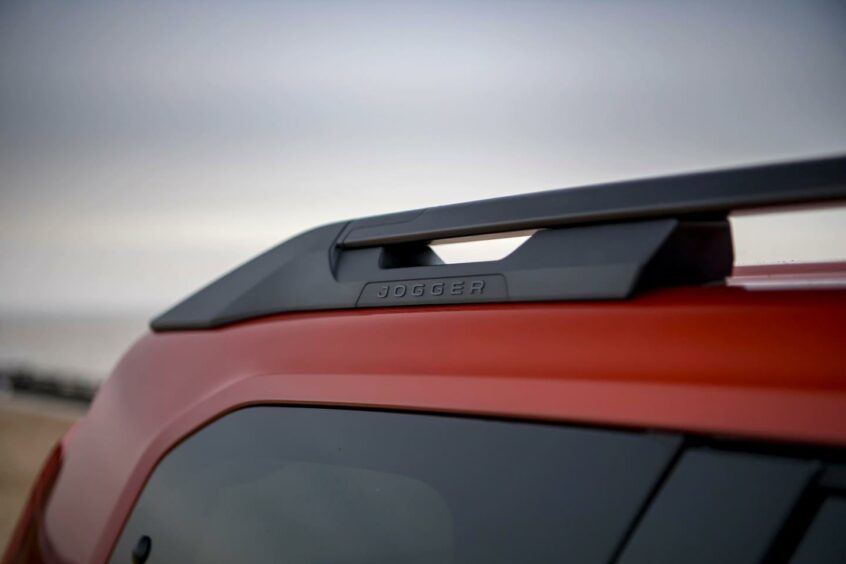Value for money is something everyone’s after at the moment.
With rising fuel prices and the cost of living on the increase, getting from A to B isn’t as cheap as it once was. So, if you need to get around but don’t want to break the bank, which way should you turn?
Enter Dacia. It’s been a company with one eye on the financial purse strings for a little while now, offering cars that have arrived with tremendous value at their very core. The new Jogger – the car we’re looking at today – aims to take that one step further with a more spacious, practical and family-focused approach than ever.
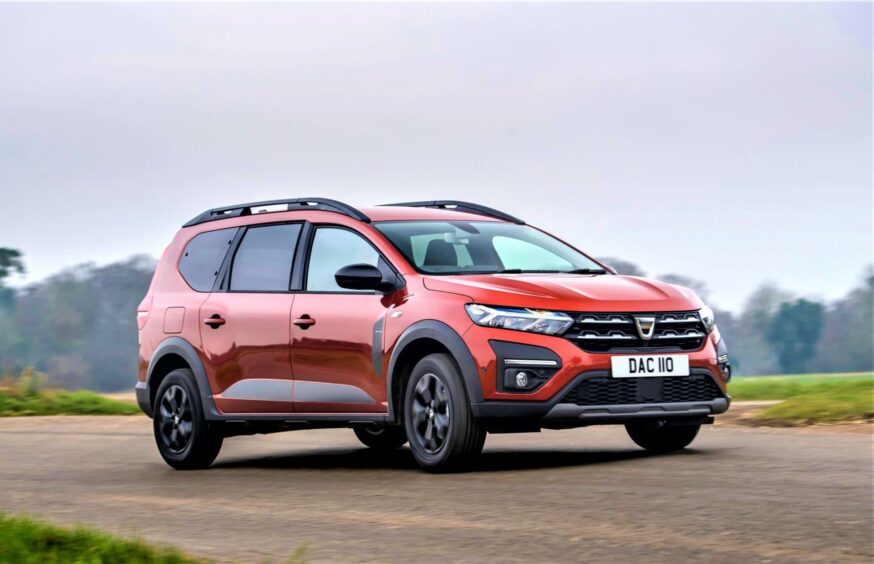
Chunky looks but light and easy to drive
Dacia has taken the current trend for crossovers and distilled its own take. So it’s got the chunky looks you might associate with the segment, but there’s some real background to the whole affair.
It’s a seven-seater – and the cheapest one on sale at the moment, at that – plus it’s based on Renault Group’s CMF-B platform, which brings a more upmarket ride and better in-car storage flexibility.
Dacia has also approached the Jogger with a real focus on weight. So while others in this class might feel somewhat bogged down, the Jogger’s 1,200kg kerb weight means that it’s light and easy to drive. This bulk-shedding means it’s efficient for its size, too. Oh, and did we mention prices start at £14,995? That’s just under £2,500 cheaper than the entry-level Ford Fiesta.
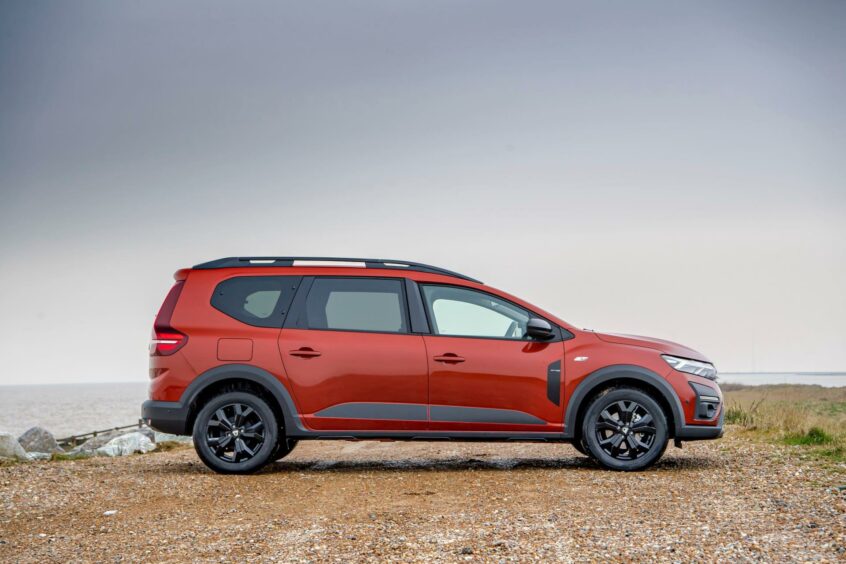
From launch, there’s just a single engine option available with the Jogger. It’s a 1.0-litre three-cylinder turbocharged petrol engine that brings 109bhp and 200Nm of torque. Though 11 seconds to 60mph might not be exactly pacy, it’s a decent amount of punch and, because of the car’s light weight, actually feels a little quicker in reality. It’s all sent through a six-speed manual gearbox, too.
Petrol-electric hybrid to come
Dacia also claims that you should be able to see up to 49.6mpg combined, while CO2 emissions stand at between 130-131g/km CO2. If this isn’t quite fuel-sipping enough, then Dacia will be adding a petrol-electric hybrid option to the range in 2023.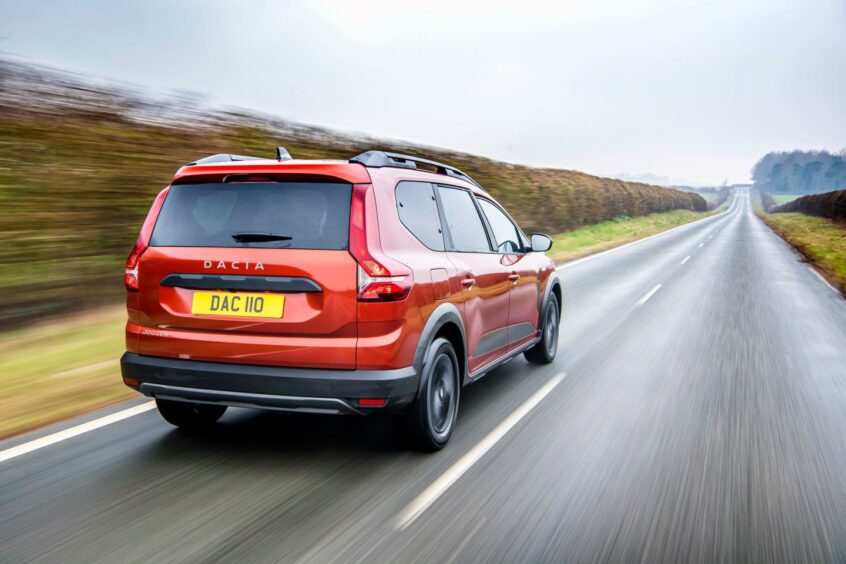
From launch, the Jogger comes with a turbocharged 1.0-litre petrol engine, though a hybrid will launch in 2023. Now we mentioned that the Jogger is light and it’s this that really shines through when you’re driving it. Sure, it’s not quick away from the line, but the peppy three-cylinder is willing and keen to get up to speed.
The six-speed manual is light in its action and so is the clutch, so it’s a doddle to drive around town. There’s a small amount of wind noise when travelling at speed, but it’s not overbearing in the slightest.
You get a great view, too, with the Jogger’s slightly elevated driving position allowing you to get a clear look around. It does feel quite long, mind you, and you do have to get acclimatised to that, but large wing mirrors and a decent amount of rearward visibility help to address this. All cars get parking sensors as standard, too, regardless of which specification you opt for.
What do you think about the Jogger’s design?
Of course, looks are always down to the individual, but we’d argue that it’s a pretty successful attempt overall. The front end, with its stylish headlights and chrome grille, definitely looks the part, while around the back the tail rear lights have a certain Volvo-esque feel to them.
It only struggles with the area past the rear windows; it can look a little ‘stuck on’ from some angles. However, given the Jogger’s real focus on function, it’s a resoundingly successful look, to our eyes at least.
It’s in the cabin where the Jogger feels most at the top of its game. You won’t find plush materials nor soft-touch plastics here, but given the car’s price, you really can’t fault it for that.
No, the Jogger’s interior has been designed to be as practical as possible. Both the second and third row of seats are light and easy to move, with the middle row rolling forward to grant access to the rear. And those rearmost seats? They can be removed entirely should you need to and the process of doing so is really easy too because they’re really light.
There’s plenty of space all around, too, with a huge amount of headroom for those sitting in the middle row. The rearmost chairs will no doubt be best suited to kids, but even taller adults will be able to get comfy there over shorter periods of time. Boot space? That’s 212 litres with all seats in place, rising to 2,085 litres with the rearmost seats removed and the middle row folded down.
Features
Now, that headline £14,995 figure is naturally impressive in today’s market, but does that mean you don’t get many toys? Well no, as it happens. Entry-level ‘Essential’ models still boast air conditioning and parking sensors, as well as Dacia’s ‘Media Control’ infotainment which uses a smartphone as the ‘heart’ of the system.
The firm argues that since everyone has a smartphone on them, why should people be forced to pay more for a system they already have? It’s hard to argue with.
But at £16,595, the mid-spec ‘Comfort’ still offers great value, with additional features such as a reversing camera and heated door mirrors adding to the package. You also get cool modular roof rails that pivot out from the main ‘rails’ to form bars onto which you can then mount features such as a roof box.
At the top of the chain sits the £17,395 Extreme SE. Here, there are 16-inch alloy wheels and extra styling elements but, in truth, it’s starting to price the Jogger away from its core ethos.
The downsides
However, there are downsides to this budget model. The Jogger has been given a one-star rating by safety agency Euro NCAP, and faced criticism for its relatively poor protection of passengers and for a lack of active safety systems.
The current Euro NCAP tests reward cars that feature the latest active driver assistance systems designed to prevent or lessen the impact of collisions, with the Jogger scoring just 39% for safety assist.
The Jogger’s score was based on testing of the Dacia Sandero Stepway, which scored two stars last year. Both vehicles have similar structures, said Euro NCAP.
Testers found that in the Jogger there were no seat belt reminders for the third row of seats and the side-curtain airbag does not extend far enough back to provide protection for those in the rear row.
The Jogger also scored 70% for adult protection and 69% for children, rating it lower lower than most other vehicles tested in recent years. While some aspects were rated “good”, others were rated “weak” or” marginal”.
Sure, the Jogger is efficient, spacious and budget-friendly, but while it feels like a car made for our time, buyers need to decide whether the lower safety rating is worth the cost saving.
Dacia’s whole approach to the car has been well throughout and executed, while the firm’s ability to create a decent seven-seater that can be sold for under £15,000 is to be commended.
All the car you could ever really need? The Jogger certainly feels that way – but Dacia will need to step up its safety ratings game if it wants to keep pace with other models in its class and price bracket.
The Facts
Model as tested: Dacia Jogger Comfort
Price as tested: £16,595
0-60mph: 11.0 seconds
Top speed: 114mph
Economy: 47.1-49.6mpg
Emissions: 130-131g/km
